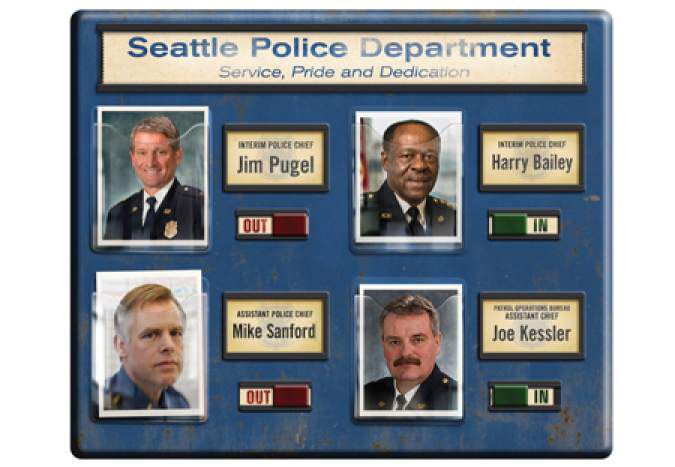There’s not much Mayor Ed Murray has gotten right in the storm over police discipline that has erupted over the last week. But one thing the fledgling mayor said at his Friday press conference rings true: The police department has a “Byzantine” grievance process for officers looking to overturn discipline they’ve received.
The process allows officers “several bites at the apple,” as one SPD source puts it. First, there is the official investigation performed by the Office of Professional Accountability, which results in a disciplinary recommendation to the chief. Then the officer has a chance to make his or her case again personally in front of the chief—a hearing that frequently results in an adjustment, according to the source. Whatever the chief decides will then be revisited if the Seattle Police Officers’ Guild files a grievance. The guild, apparently, has been anything but shy about filing grievances, resulting in the “backlog” of cases about which Murray spoke on Friday.
So what’s a new mayor to do? Take on that process, obviously, and that quite likely means reducing the influence of the unions. There are two: SPOG and the Seattle Police Management Association. Unfortunately, Murray, who was endorsed by both unions, has since taking office given them more power not less—and called into question, even before this latest flap, whether he was moving the department toward reform or away from it.
Soon after taking office, the mayor pushed out Jim Pugel as interim chief, even though Pugel was widely regarded as a reformer and had an international reputation for innovation. In the place of Pugel, who was relegated to a basement office far from headquarters, Murray appointed a man who had been recommended to him by both SPOG and SPMA: Harry Bailey. According to
The Seattle Times
, Bailey once served as SPOG’s vice-president. And the interim chief’s ties to the management association could be gleaned from his promotion of Joe Kessler, then serving as vice-president of SPMA, to the rank of assistant chief.
Those were only a few of the shake-ups that occurred during Murray’s first month in office. One got the feeling that the mayor thought shaking things up in itself was tantamount to reform, without worrying too much about who exactly was being swept out and who was being swept in. “We are restoring honesty to the police department,” Murray said on Friday, although he has not made a case to the public about how he has done so. Indeed, as he admitted on Monday while announcing that an officer who had harassed The Stranger’s Dominic Holden would receive a misconduct finding after all, what’s going on now looks to many people “like the opposite reform.” It not only looks that way, it would seem to be the case.
The search is now on for a permanent police chief. Will the mayor choose someone who can not only impose consistent discipline but stand up to the unions? His reform bonafides, and SPD’s credibility, is on the line.








